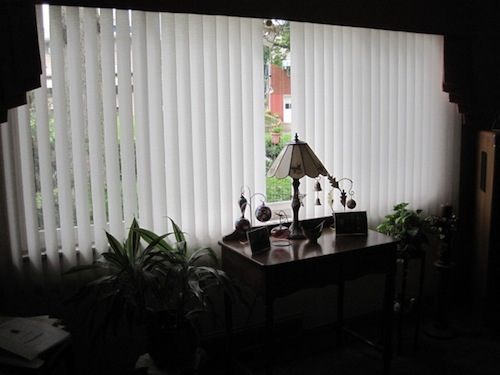Eight o’clock on Tuesday morning: After working a 12 hour night shift at Markham Stouffville Hospital, I am standing at the cash register in Jiffy Lube waiting for the mechanic to ring me up for an oil change. Today’s oil change took slightly longer than the customary 15 minutes, so the mechanic is fluttering about, informing me that my car will be finished in 5 minutes, then 2 minutes, then 1 minute. Trying to slow him down, I tell him not to worry. I’m not even thinking about the time. My thoughts are occupied with the scent of freshly baked bread that is filling the small office. I have two warm loaves in brown paper bags.
While the mechanic worked, I had followed my nose to a nearby bakery and slunk inside “just to look.” I was not prepared for the sights or aromas that engulfed my senses. After a friendly chat with the baker’s wife, I purchased a loaf of whole wheat honey with sunflower seeds, and a walnut raisin poppyseed teacake. Sitting on an obliging curbside, I allowed myself a few generous bites of the teacake. Not a few moments later, the baker’s wife came out with another loaf of bread and placed it, warm and golden as a freshly-washed baby, in my lap. “This one is too small — you should take it home!” she said with a laugh.
“Th, th … thank you! Thank you very much!” I stuttered in delighted surprise.
The mechanic gave me the total; his attention brought me back to the present. Paying him, I thanked him, and he smiled before hastening me out the door into my car. This is Jiffy Lube, after all.
Driving home after a night shift, I am alert, but barely. Working the night shift is a kick-in-the-gut application of the psalmist’s words, “My times are in your hands.” Shift workers often suffer from abdominal pain, headaches, lethargy, difficulty concentrating, mood problems, insomnia, and other nasty side effects. Another prominent side effect is the lack of synchronization with “normal people” who work during the week and have weekends off. Many shift workers complain that they regularly miss church and other events that occur on a regular, weekly basis. Sometimes a shift worker feels like he or she lives on another planet.

Nine o’clock on Thursday morning: My night shifts are done and I have a day off. Last night, I slept at a friend’s house then drove her to work this morning. She works in an office in Missisaugua, and as she and I go through the front door, we are greeted by happy faces and assorted coffee mugs. We walk to the office kitchen, and I stand in the corner and watch. Sarah and her co-workers stand in small groups and make chattering conversation. Through the one window, I can see the morning sun shining sweet and golden on a concrete and steel gray landscape and illuminating the yellow kitchen with friendly light. The only unpleasantry to be had in this place is the lack of coffee cream.
Sarah and her co-workers disperse to their cubicles and I sit at the kitchen table alone, staring at the amber surface of my tea. A voice in the back of my head says that working in an office is far from perfect, but it is my heart’s indignant cry that I take notice of. I want this. I really, really want this. I want a nine-to-five. Why do I want it so badly?
The North American economy is built on service, sales, trading, and the nine-to-five. A nine-to-five provides a natural rhythm of rest and work. “Come to me, all who are weary and heavy laden, and I will give you rest,” says Jesus. He also says, “Take my yoke upon you ... for I am gentle and humble in heart, and you will find rest for your souls.” Ah, rhythm. I need a rhythm.

However, as I stated before, sometimes working shifts makes you feel as if you are living on another planet far from your neighbors. God has given all people good work to do, and some — nurses, restaurant staff, music teachers, personal trainers, and so on — have been given the gift-burden of odd hours. So let us be quick to listen, slow to speak, and slow to judge. If you see your neighbor dozing off during the sermon or not attending on a Sunday morning, do not assume they lack faith. They may have just worked a night shift. Churches have a special role in caring for their shift-working congregants. Perhaps allow small group meeting times to be more flexible; consider changing Sunday service times or adding an evening service; or maybe install a quiet room where a shift-worker can catch an hour or two of sleep before attending church. Be creative, people of God.
Michelle Gallagher hails from the sunny paradise of Southern Ontario, Canada, where she lives and works as a nurse and sundry other things. Michelle loves to have people "over" (even if it means just reading books side by side) and she is happily surrounded by a vibrant church and family.















